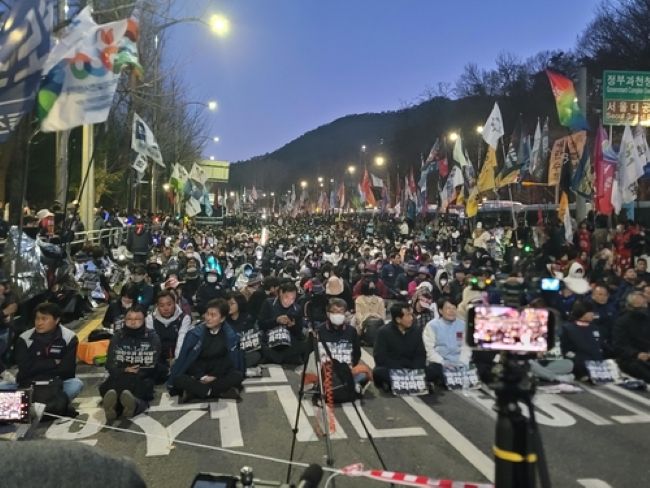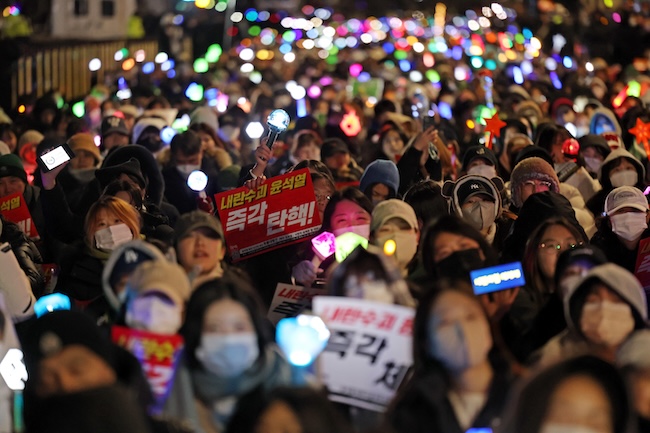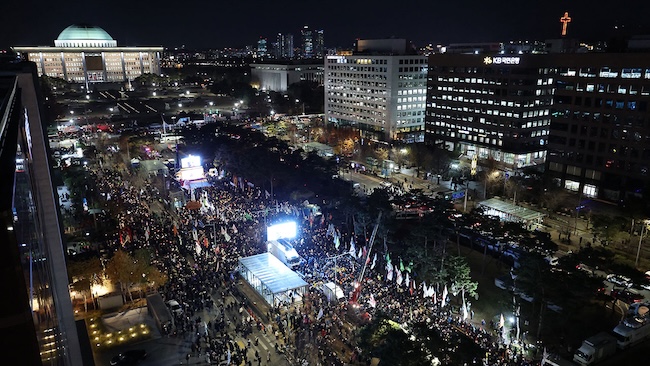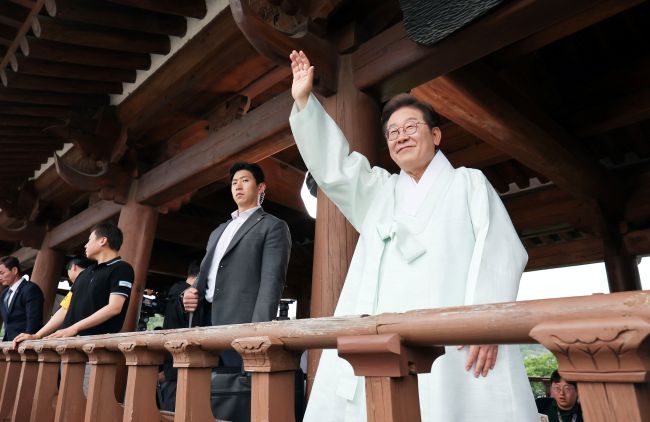SEOUL, June 6 (Korea Bizwire) — Political uncertainty in South Korea has eased sharply following the June 3 presidential election, returning to levels not seen since before last year’s state of emergency declaration, according to data released by the Bank of Korea.
The central bank reported that the nation’s Political Uncertainty Index stood at 1.5 as of June 4, based on a 7-day moving average. This marks a return to stability comparable to early December 2024, just prior to former President Yoon Suk-yeol’s emergency decree, when the index hovered between 0.4 and 0.5.
The index, which tracks the relative frequency of news articles containing the terms “politics” and “uncertainty” since January 2000 (with a long-term average baseline set at 0), had spiked to a historic high of 12.8 on December 14, 2024, following Yoon’s controversial imposition of martial law. It surged again to 12.4 on January 2, 2025, as tensions escalated over the execution of Yoon’s arrest warrant.

Tractors and trucks are at a standstill following police orders during a farmers’ group protest calling for President Yoon Suk Yeol’s impeachment in southern Seoul on March 25, 2025. (Image courtesy of Yonhap)
While the index briefly rose above 1.0 after this week’s election, the Bank of Korea emphasized that such minor fluctuations are typical even in normal times and do not indicate renewed volatility.
Past political crises had triggered similarly sharp spikes. The index hit 8.8 in March 2004 after the impeachment of President Roh Moo-hyun, and 6.2 in December 2016 following the impeachment of President Park Geun-hye.
The Economic Uncertainty Index, which uses the same methodology, also fell to 1.2 on June 4 — nearly identical to its level on December 3, 2024, before the political crisis unfolded. The economic index had peaked at 5.4 on January 2 this year, before gradually stabilizing to as low as 0.5 in mid-May.
The easing of political tensions is expected to bolster investor sentiment and policy visibility. “We estimate that the won-dollar exchange rate was about 30 won higher than fundamentals warranted due to political instability,” said BOK Governor Rhee Chang-yong at a January press briefing. By late May, he had reassessed the situation, noting that “the political risk that had gripped us for six months has now largely subsided.”
Analysts are now anticipating a more stable economic policy environment. A recent report from Nomura predicted improved visibility in economic policymaking, while Goldman Sachs forecast that a combination of political clarity, aggressive fiscal stimulus, and market-friendly policies would strengthen the Korean won.
Rep. Cha Kyu-geun of the progressive Innovation Party, who obtained the data from the Bank of Korea, urged the government to swiftly pass a supplementary budget to support economic recovery now that political risk has receded.
M. H. Lee (mhlee@koreabizwire.com)



